If you have depression or anxiety, college life sucks on a whole new level. But it’s 2015, so, naturally, there’s an app for that.
Northwestern’s Center for Behavioral Intervention Technologies has developed Intellicare, a suite of smartphone applications designed to help manage anxiety and depression by targeting their causes. For now, the apps are only available in the Google Play store, so Android users get dibs on these bad boys.
Of course, you might be thinking, “An app isn’t going to solve my problems.” And you’re right. But they sure might help, so I’ve taken the liberty of reviewing five of them so you don’t have to worry about what you’re getting into. Given my history with anxiety and depression, I like to think I provide credible judgement on the effectiveness of these apps, but your results may vary (i.e., don’t sue me if I’m wrong).
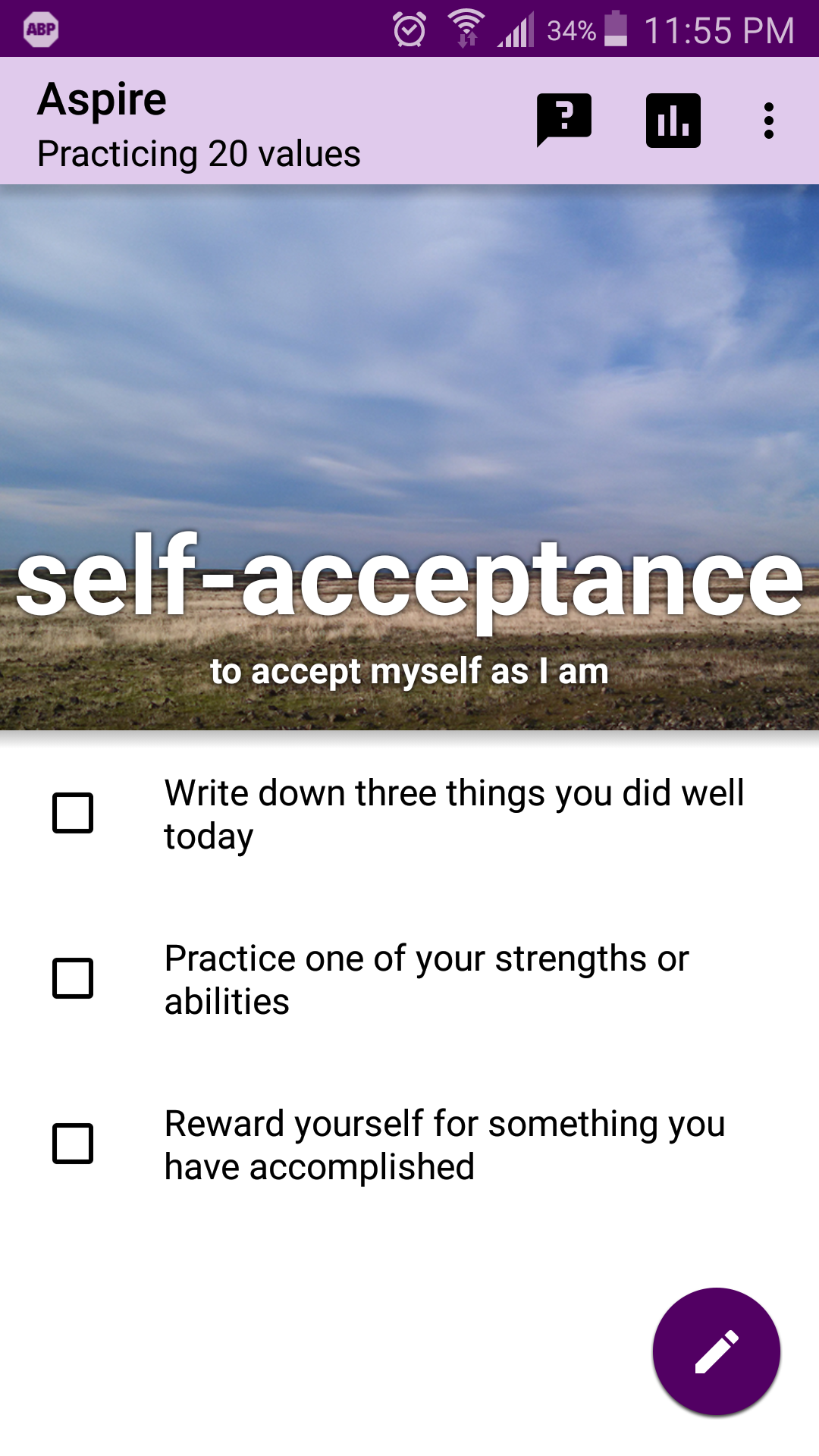
Aspire: You know how depression makes you feel like your life has no direction? Aspire knows, and it has your back. With Aspire, you choose from 20 values like hope, self-acceptance and purpose, all of which can help you get your life on track. Each value includes a few “paths” to guide you in reaching your goals. The paths are simple, customizable tasks suited to each value. Doing anything at all can seem like a struggle in itself when you’re depressed, but Aspire lets you edit and create paths so you don’t have to feel overwhelmed.
Like most things in life, I approached this app assuming it would be dumb, but I must grudgingly concede that it’s actually helpful. I enjoyed the freedom in choosing the values, and even if the paths seemed a little cheesy at first, there is a definite sense of accomplishment in completing them. On particularly bad days, it can be hard to find the strength to do anything at all, but the ability to edit paths is great when the given options seem too daunting. Props to Aspire for actually making me feel not so terrible.
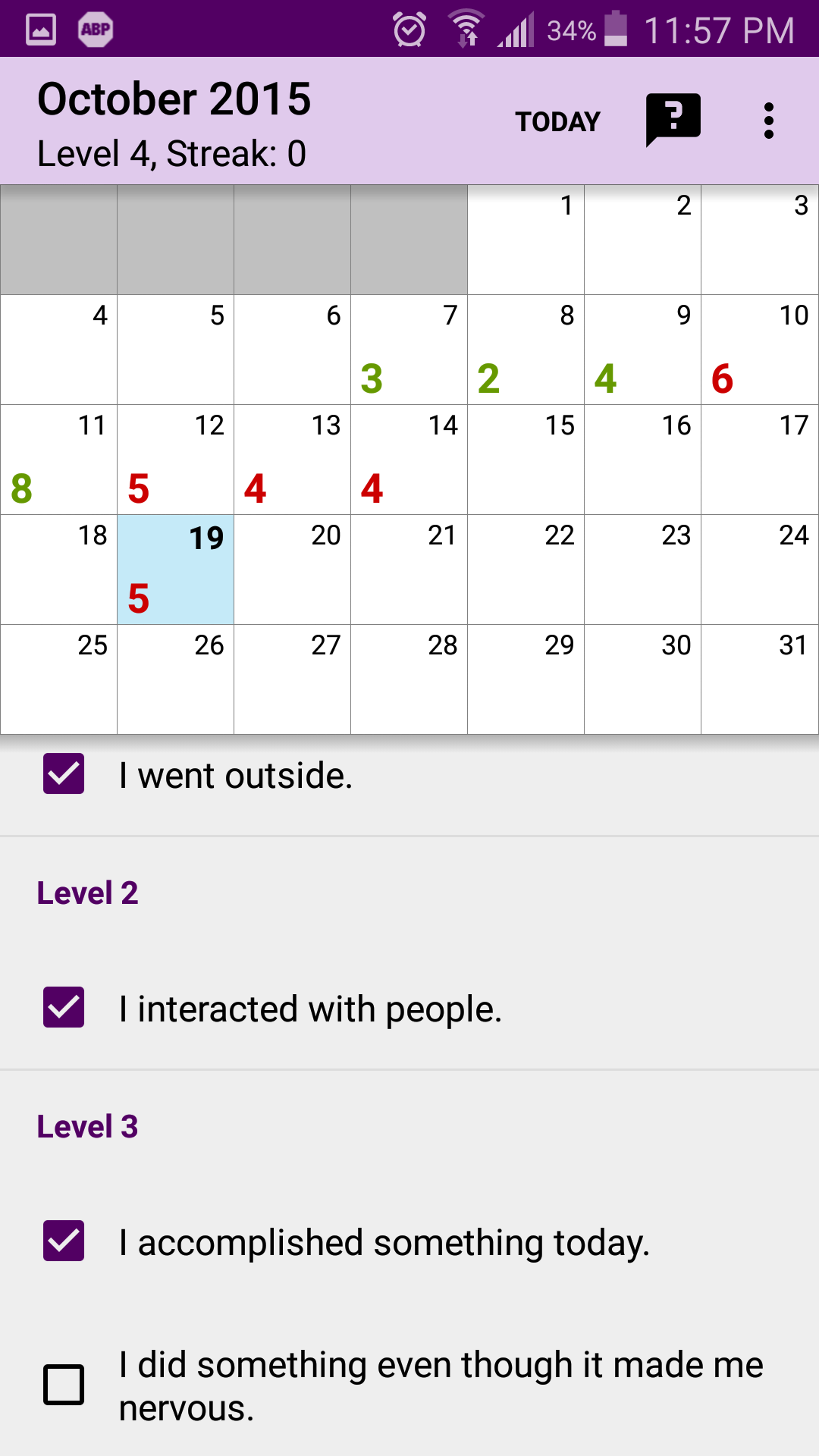
Daily Feats: This is another app for improving productivity while depressed, with the same concept of achieving different tasks throughout the day. But unlike Aspire, Daily Feats has four levels of depressedness, and completing the set number of tasks lets you level up. It feels very similar to to Aspire, but without a set of definite goals.
As a competitive person, I enjoyed this app. The whole “leveling up” concept seemed tasteless at first, but it did make me more inclined to complete the tasks. The default tasks are very broad and simple, so they aren’t hard to achieve. I’d rank this one on the same level as Aspire, with both apps being legitimately helpful in lifting my spirits on my low days.
Day to Day:If Aspire and Daily Feats are the cool kids of the Intellicare suite, Day to Day is the their slightly-less-cool-but-still-tolerable younger sibling.
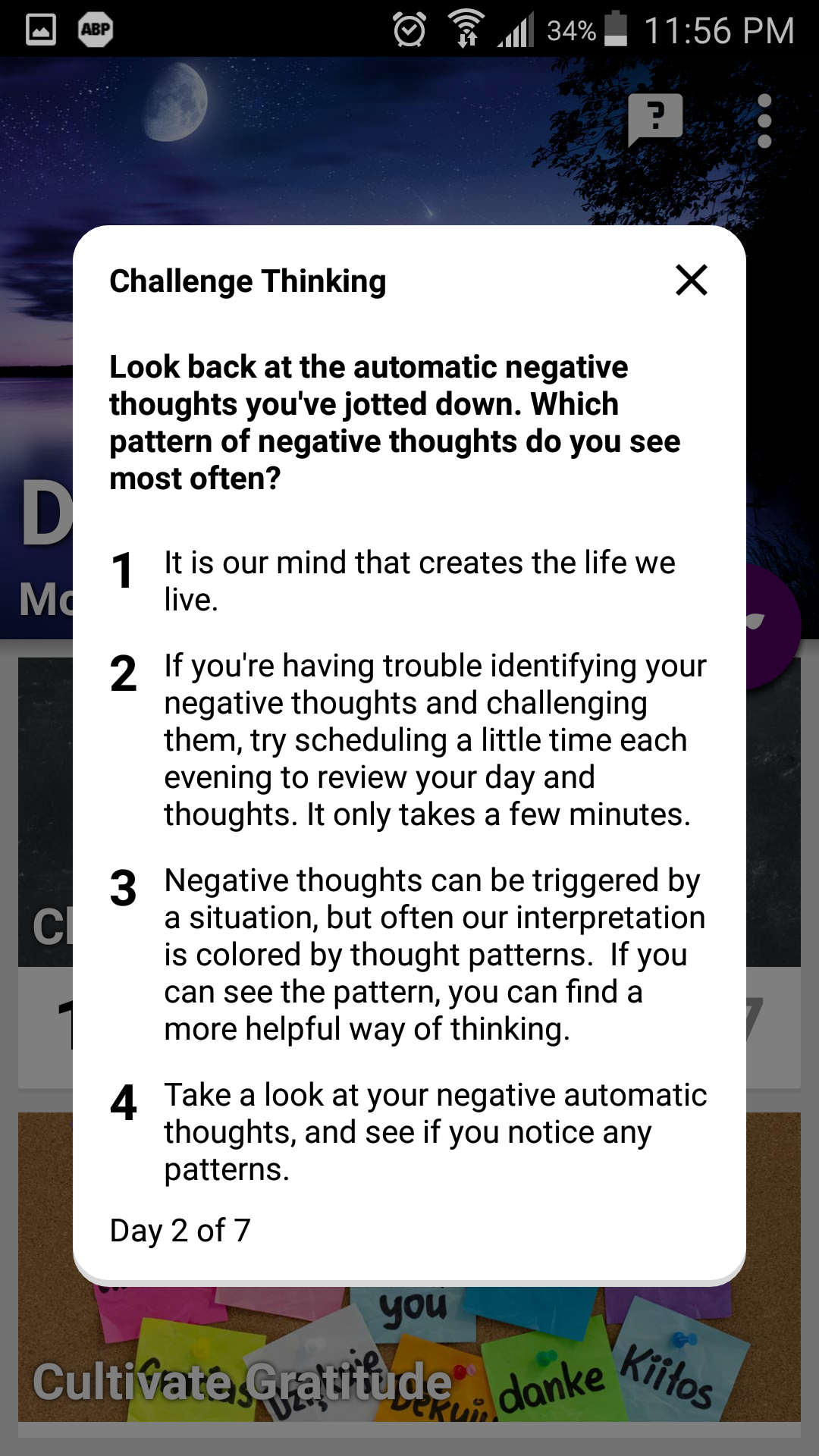
Day to Day tries to boost your mood by teaching you a new skill like gratitude, connectedness and problem solving over the course of five weeks. Each day you get “inspiring” thoughts and suggested activities. The cool part about this app is that you get five notifications throughout the day with new thoughts, which are nice when you’re feeling down. Of course, doing anything for one day is hard enough if you’re depressed, so five weeks of commitment might be daunting to anyone considering this app.
Day to Day didn’t really motivate me to fight my depression. I gave learning each skill a good college try, but there’s no real sense of gratification. The notifications were decent pick-me-ups, but the effects are short-lived. If you’re looking to manage your depression, I’d give Daily Feats or Aspire a try instead.
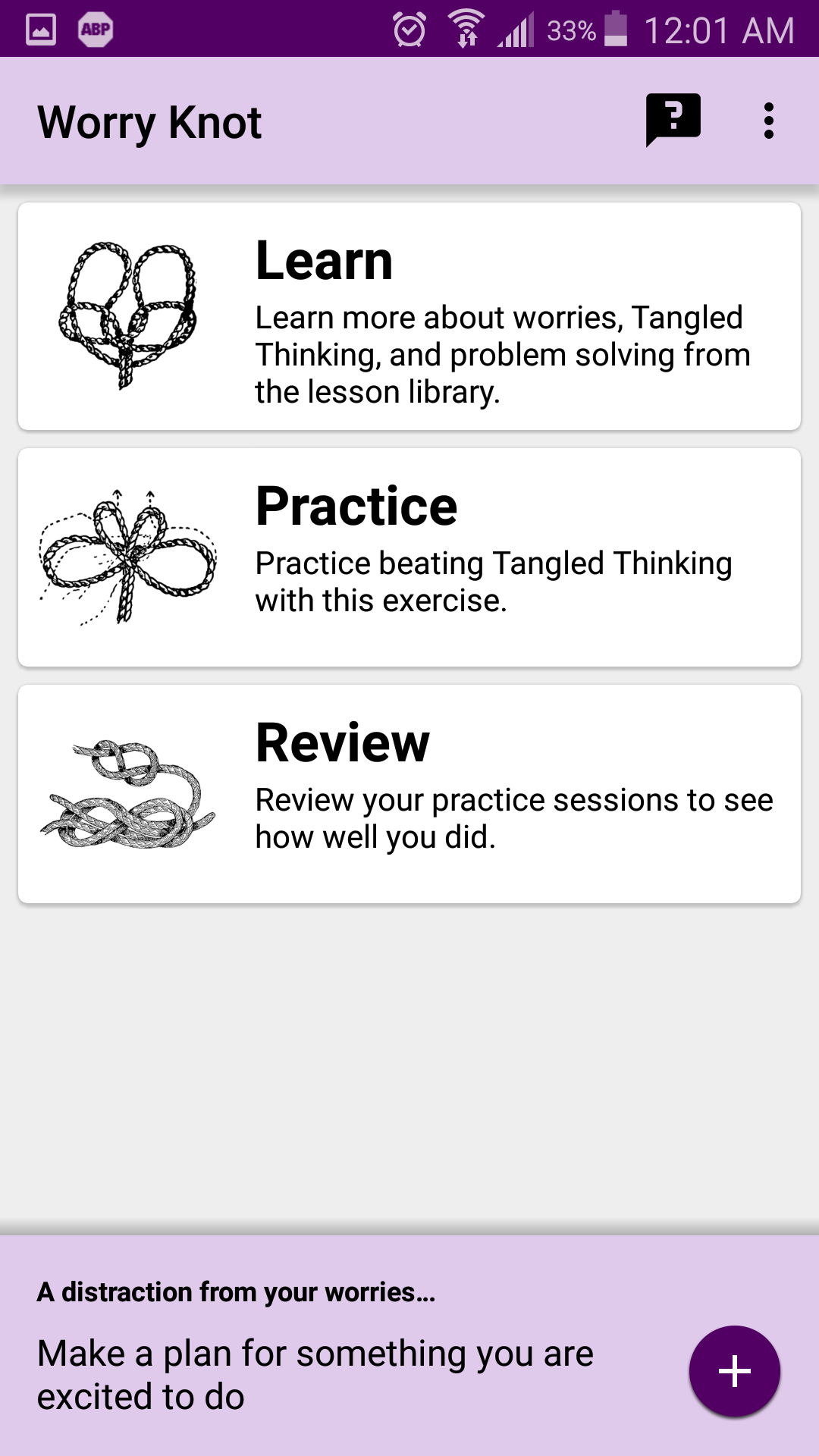
Worry Knot: Worry Knot manages anxiety in real time. It’s supposed to lower anxiety by distracting you and teaching you to feel indifferent in worry-inducing situations. If you have a moment to yourself to sit down and follow the instructions, it really does help. But ain’t nobody got time for that, so the anxiety-prone student on the go might not find this app to be the most helpful. However, if you do get a chance to use it properly, you probably won’t regret it.
This app was actually helpful in easing my anxiety at times, but I can’t see myself relying on it. It reminds me of guided meditation; it’s calming but I have zero time to do it. I can’t say it isn’t worth trying if you have anxiety, but Worry Knot definitely isn’t a cure-all.
Thought Challenger:Thought Challenger is for those moments when you find yourself overwhelmed by negativity and you just can’t see the sunny side of life.
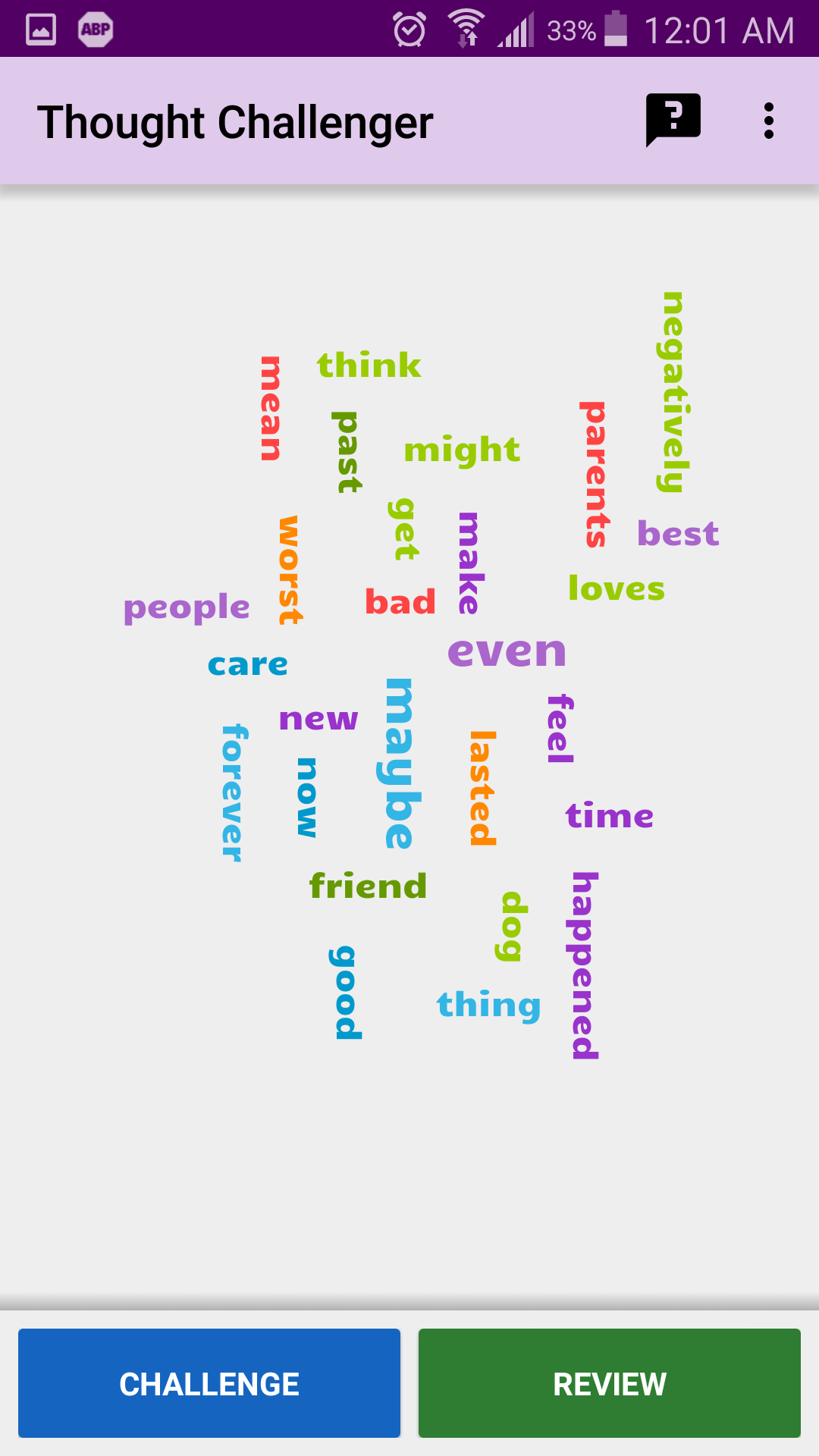
Well, it's supposed to be. The TL;DR version of the app: You type in your negative thought and a positive alternative to that negativity and, voila, Thought Challenger makes a pretty word cloud to cheer you up. Technically, you're supposed to reflect on and analyze your feelings, too, but if pretty graphics and a little introspection were all it took to make depression ease up, none of us would be on medication.
Despite my best efforts to use the app to its fullest potential, I didn’t find it very helpful at all. Word clouds are no match for anxious or depressive thoughts. It seems like this app relies heavily on introspection, and for that you don’t really need an app at all.
Thought Challenger, it’s not you, it’s me. Well, maybe it is you.